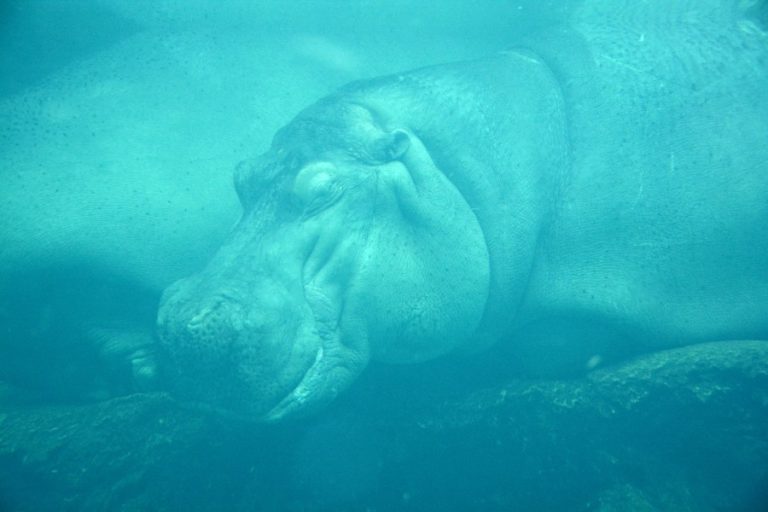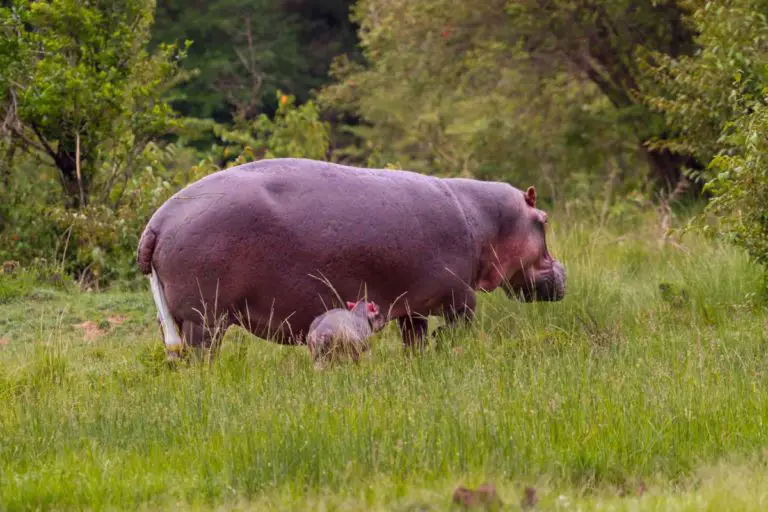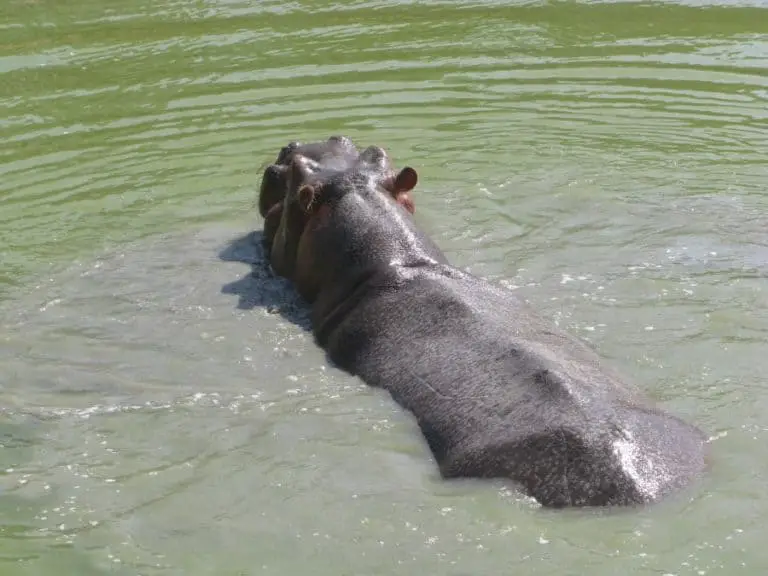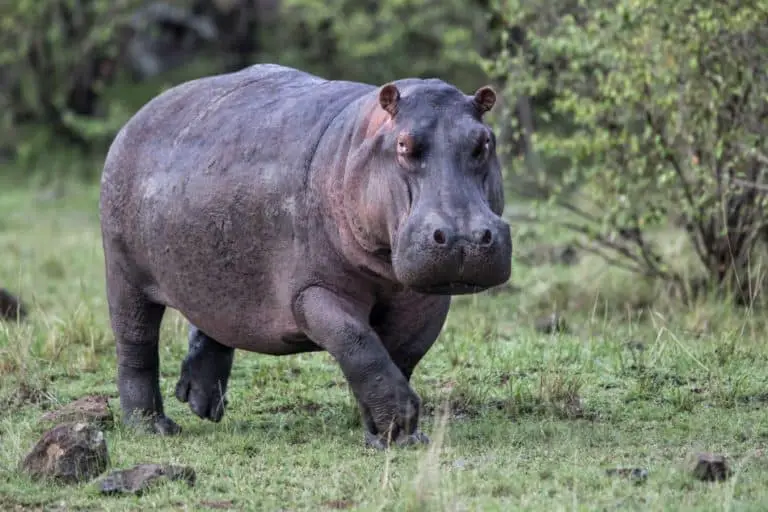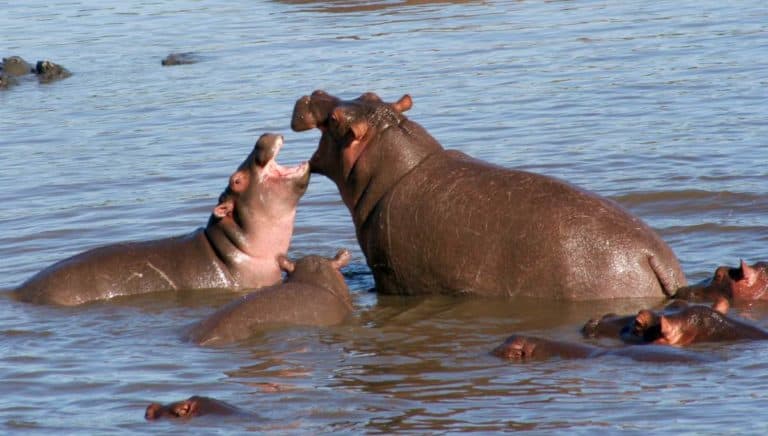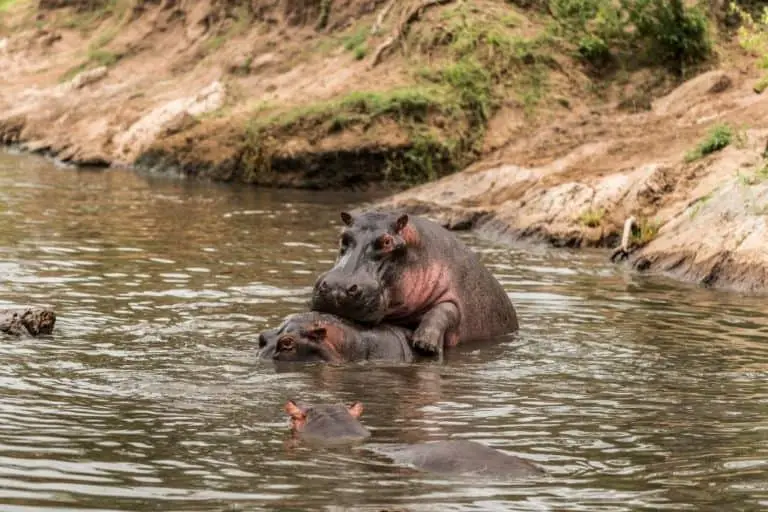Are Hippos Nocturnal? Hippos Sleeping Facts
While it is true that hippos are most active at night, they are not technically nocturnal animals. Instead, they are called crepuscular, which means they are most active at dawn and dusk.
This is likely because hippos spend much of their day wallowing in rivers and lakes, and the night’s coolness helps them stay calm and avoid the heat of the day.
However, hippos are not always active at night. If the temperature is too hot or there is not enough water to wallow in, they may spend the entire day resting in the shade.
What do we know about hippos’ sleeping habits?
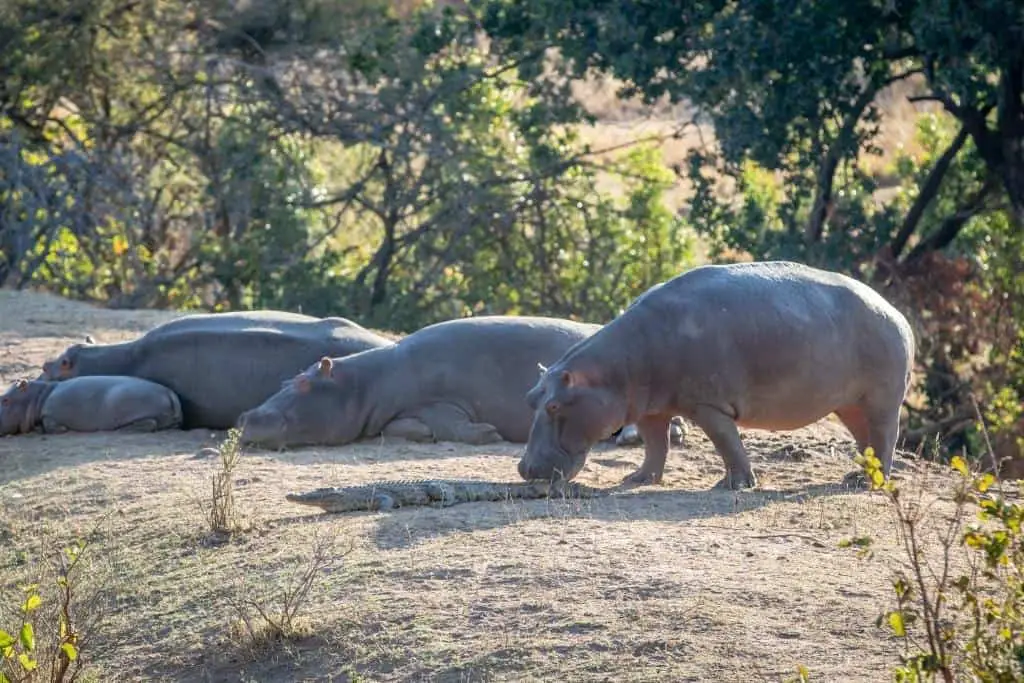
Hippos spend most of their time in the water, but they can also sleep outside of it.
When they sleep in the water, hippos typically remain submerged for up to five minutes. However, they will occasionally come up for air during this time.
Out of the water, hippos typically sleep in mud wallows. These wallows help keep the animals calm and protect them from the sun. Hippos are generally active at night but often take naps during the day.
Despite their large size, hippos are relatively light sleepers. They often only sleep for short periods and can quickly awaken by noise or movement.
This is likely due to their need to be on constant alert for predators.
Do hippos dream?
Although we can’t know for sure, there’s reason to believe that these lumbering creatures do indeed dream. For one thing, hippos are brilliant animals.
Moreover, they exhibit many of the same sleep patterns as humans. During a typical day, hippos spend around 12 hours submerged in water. But they often sleep for up to four hours on land at night.
This suggests that humans typically dream when they experience something akin to REM sleep.
We don’t know for sure, but hippos likely do dream. All mammals have similar sleep cycles, and during the Rapid Eye Movement (REM) stage of sleep, animals often dream.
What do hippos dream about? We can only guess, but given their love of water, it’s likely that their dreams include swimming and wallowing in rivers and lakes.
How does their sleep behavior vary based on the environment they live in?
In different environments, you will find various kinds of hippo sleep behaviors.
For example, in some areas where the water supply is limited, hippos will spend most of their time in the water and only come out to feed at night. This helps them conserve moisture and keep their skin from getting too dry.
In other areas with a more plentiful water supply, hippos often wallow in the mud during the day to cool off and protect their skin from the sun.
At night, they will graze on grasses and other plants. Hippos are browsers rather than grazers, so they need to eat a large quantity of vegetation daily. As a result, their sleep patterns are dictated by their need to find food.
Are all hippos nocturnal?
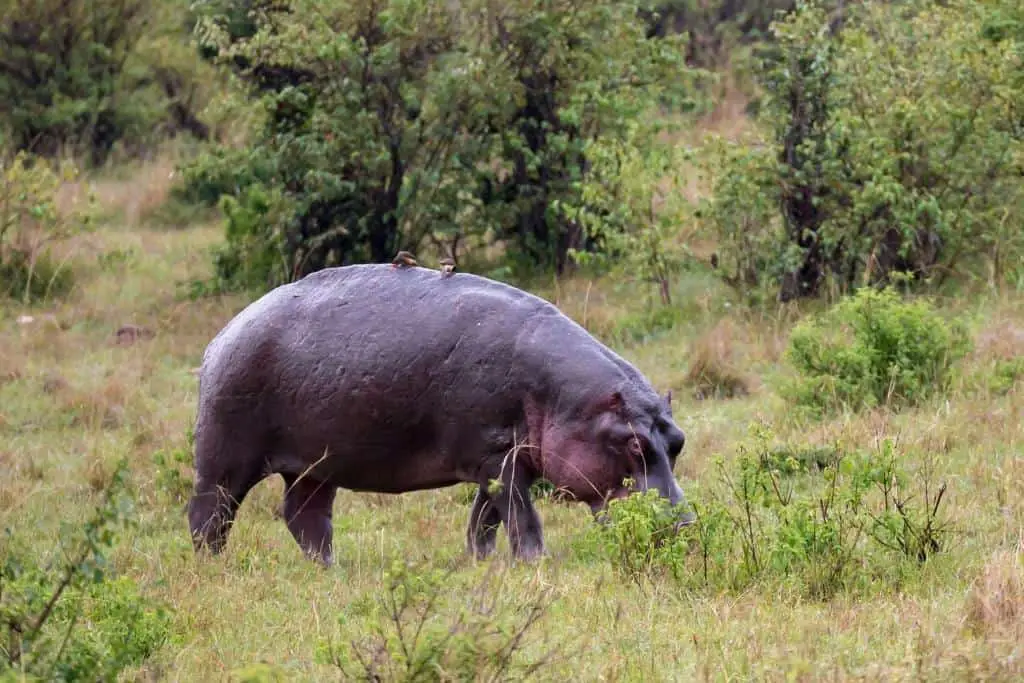
Although most hippos are nocturnal, there are a few exceptions.
- For example, the pygmy hippo is primarily diurnal and is active during the day.
- Additionally, some hippopotamus populations are daily principally, while others are more nocturnal.
- However, most hippos are nocturnal, spending most of their time in the water or mud wallows.
Being nocturnal is an essential part of a hippo’s survival strategy.
How do hippos Sleep?
They often sleep in short bursts, usually for around 30 minutes. This allows them to stay alert and responsive to any potential threats.
Hippos also tend to sleep on their side or stomach, which helps distribute their weight more evenly and prevents them from getting too sore.
In addition, the thick layers of fat and skin on a hippo’s body help insulate against the cold and provide cushioning against the hard ground.
How long do hippos stay awake?
The answer varies depending on the season. In the winter, when food is scarce, hippos may spend 10 hours awake to forage for food.
During the summer, when food is more plentiful, they may only be awake for 8 hours or so.
Can Hippos see at night?
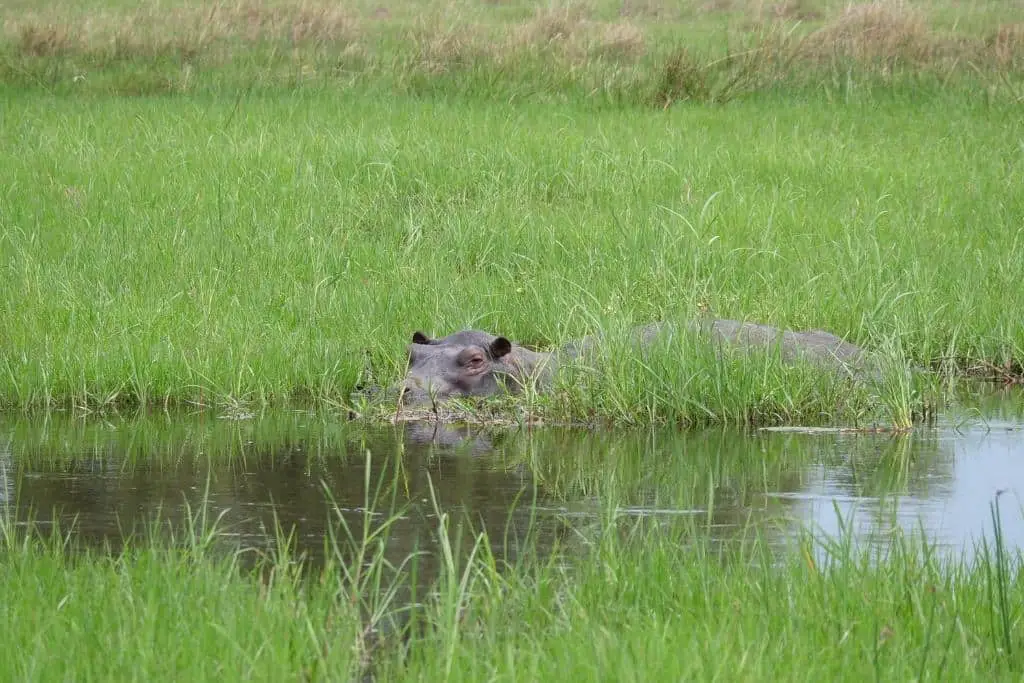
They actually have excellent night vision. This is because their eyes are specially adapted to low light conditions.
For example, Hippos have large pupils that allow them to collect more light, and they also have a reflective layer at the back of their eyeballs that helps to amplify the light that they do receive.
This adaptation gives hippos an essential advantage in their nighttime environment, where they can move around safely and avoid predators.
Hippo Sounds at Night
If you’ve ever spent a night in the African bush, you know there is no sound shortage. The darkness is full of sound, from the howl of a distant jackal to the hooting of an owl in a neighboring tree.
But one sound stands out above the rest, and that’s the sound of a hippo grunting.
Hippos are incredibly vocal creatures and often communicate with each other through a series of grunts, snorts, and roars. These sounds can be particularly eerie at night, echoing through the darkness like some primordial song.
Although they are herbivores, hippos are notoriously aggressive and have been known to attack humans who come too close to their territory.
